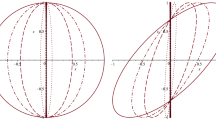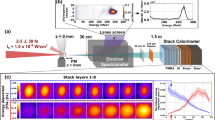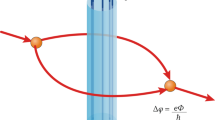Abstract
IN a letter to NATURE of October 31, 1907 (vol. lxxvi., p. 661), a copy of which arrived here recently, Mr. Barkla criticises a paper of mine which was published in the Philosophical Magazine for October. In that paper I tried to show how closely the properties of γ and X-rays were in agreement with the hypothesis that they consisted mainly at least of neutral pairs, and I pointed out that even the peculiar polarisation effects which Mr. Barkla had shown to exist might be explained, not unreasonably, as a consequence of the rotatory motion which such pairs would probably possess. I suggested that a pair might be more likely to become entangled with and deflected by an atom revolving in the same plane as itself.
This is a preview of subscription content, access via your institution
Access options
Subscribe to this journal
Receive 51 print issues and online access
$199.00 per year
only $3.90 per issue
Buy this article
- Purchase on Springer Link
- Instant access to full article PDF
Prices may be subject to local taxes which are calculated during checkout
Similar content being viewed by others
Author information
Authors and Affiliations
Rights and permissions
About this article
Cite this article
BRAGG, W. The Nature of γ and X-Rays . Nature 77, 270–271 (1908). https://doi.org/10.1038/077270a0
Issue Date:
DOI: https://doi.org/10.1038/077270a0
This article is cited by
-
Science, assertion, and the common ground
Synthese (2022)
-
Scientific conclusions need not be accurate, justified, or believed by their authors
Synthese (2021)
Comments
By submitting a comment you agree to abide by our Terms and Community Guidelines. If you find something abusive or that does not comply with our terms or guidelines please flag it as inappropriate.



